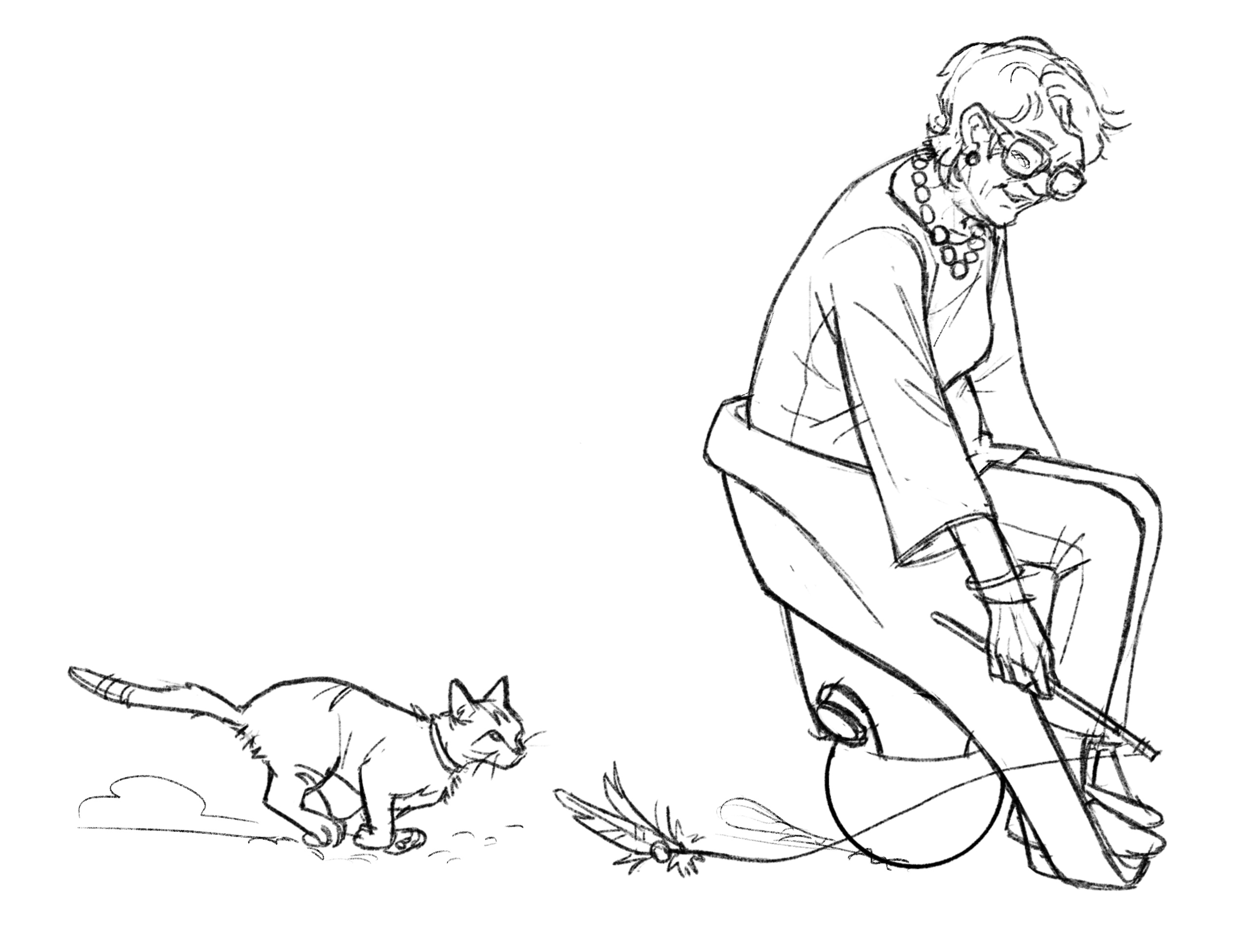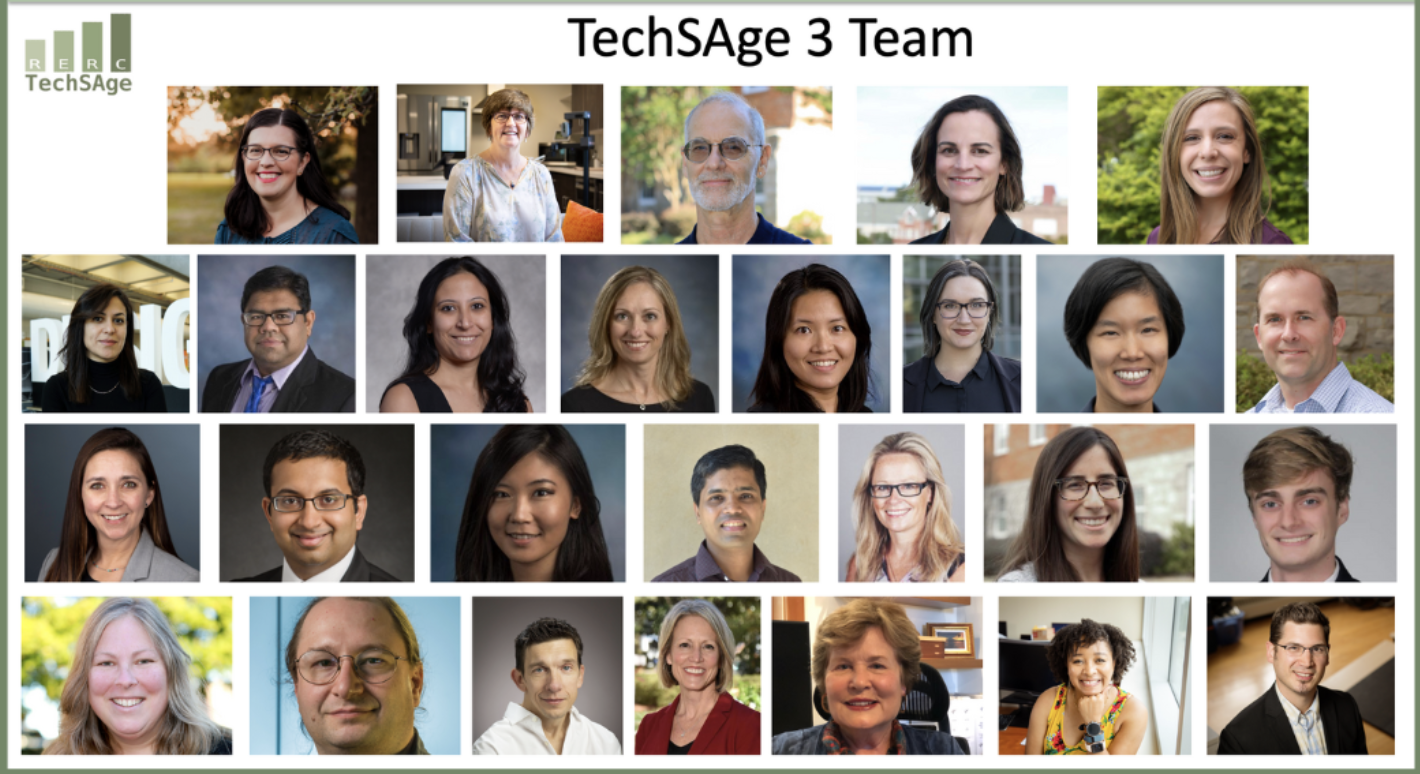Projects
Technologies to Support Aging with Disability
We have been awarded a third, 5-year, $4.6 million grant from the National Institute on Disability, Independent Living, and Rehabilitation Research (NIDILRR). The new RERC aims to “meet the needs of people with long-term disabilities where theylive, work, and playby conducting advanced engineering research and development of innovative technologies.” The center will be based at the University of Illinois Urbana-Champaign, with continued collaboration with Georgia Tech and Georgia State University.
The Rehabilitation Engineering Research Center on Technologies to Support Aging among People with Long-Term Disabilities (RERC TechSAge) is a collaborative grant center based at Georgia Institute of Technology, University of Illinois Urbana-Champaign, and Georgia State University. Founded in 2013, TechSAge features multidisciplinary research, development, and training projects that are dedicated to understanding the needs of, and developing supportive technologies for, people aging with long-term vision, hearing, and mobility disabilities.

MiaPURE (Modular, Interactive and Adaptive Personalized Unique Rolling Experience)
National Science Foundation Award Number: 2024905
Elizabeth T Hsiao-Wecksler (PI), Deana McDonagh (CI) and Bob (William) Norris (CI)
Amount: $1,499,539
Period of Support:10/01/2020-09/30/2024
Broader Impact: The University of Illinois has a rich history in ground-breaking disability research and engineering research. This project combines these strengths in an interdisciplinary team of faculty, staff, and students fromEngineering, Industrial Design, and Disability Services with the goal of attaining a transformational user-centered co-robot that will allow natural hands-free rolling mobility of people with lower-limb disability. The technological approaches explored in this project can be applicable to making a realizable family of ballbots to address a variety of use cases and stakeholders (consumers, healthcare, workforce, military). This project will also provide educational opportunities to bring design thinking, focused specifically on design for disability, to university courses and high school engineering summer camps. With support from this project, we envision the creation of a dedicated Disability Maker-Lab within the US Paralympic Training Center at UIUC to provide these students, and those across the campus, with an immersive and empathic exposure to real-world application and individuals with physical disability.
Intellectual Merit: This integrative project explores a common omnidirectional ballbot platform with multiple human-robot interfaces for modular and adaptive design configurations and input control. The primary goal is to improve upon hardware and control of self-balancing ball-based robots to allow for a safe, compact, and intuitive mobility device for people with lower-limb disability. This collaborative riding ballbot will feature omnidirectional, hands- free movement and ability to adapt to users of different sizes and trunk function ability in a variety of environments. A secondary goal is to exploit modularity to envision easy conversion into a companion robot capable of supporting substantial top-heavy payloads (e.g., adult human weight). Both design configurations utilize a common ballbot drivetrain, which will be a sharable testbed to allow others to explore ballbot research questions. We will explore customizable and scalable design needs to accommodate different users in complex environments. We will explore two input control modes to propel either device configuration: direct physical interaction (leaning of the torso while riding or pushing/pulling the companion ballbot), and remote command using an input device (e.g., joystick, gesture control, brain-machine interface). Advanced driving assistance such as obstacle avoidance and semi-autonomous navigation between predefined indoor locations will also be investigated.
Aging in Place Housing System
Deana McDonagh (Empathic Design)
Andrew Fell (Architecture)
This is a fully compliant Americans with Disabilities Act (ADA) residential housing system that is specifically designed for aging in place (aging in your home) regardless of ability. The structure will be reasonable cost construction with a high attention to design detail (luxury feel) for the resident(s). Destigmatizing disability and aging is essential in order for us to design for ability rather than focusing on inability.
More information will be shared throughout the development of this concept.
Aisle Chair
Designed by Isaiah Rigo, Philip Croft, Adam Bleakney and Deana McDonagh
A portable personal chair to assist the individual (wheel chair user) when traveling via plane, train or coach. This small chair will provide mobility while their full scale chair is in storage while traveling.
This is an example of new product development, where the designers (Rigo and Croft) are Industrial Design students who are also wheelchair users. They integrated their valuable personal experience and insight into the designing process.
Human Performance Mobility Maker Lab
Coach Adam Bleakney
This is a dedicated maker lab specifically designed for accessibility. It is located at the heart of the disability community on campus (Disability Resources and Educational Services). It is located alongside the Paralympian athlete training facility that represents a flagship on our campus as we embrace innovative advances within the wider student community.
(dis)Ability Design Studio
Beckman Institute
Room 1534
Urbana, IL 61802, USA




